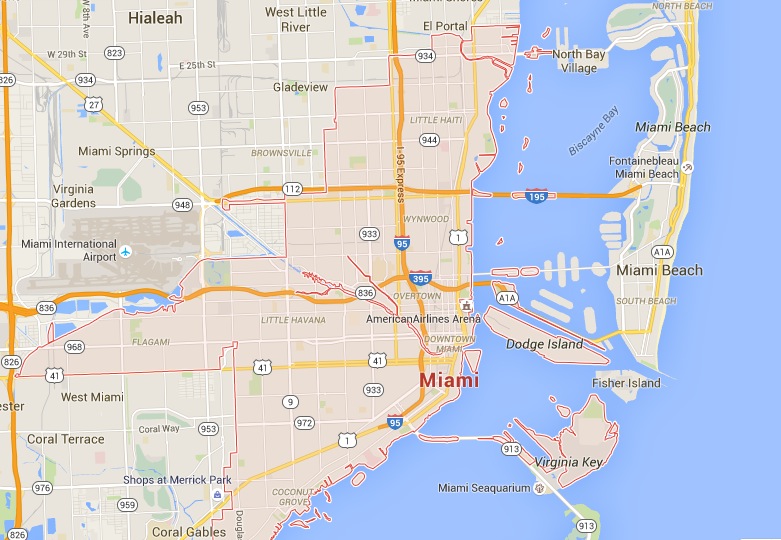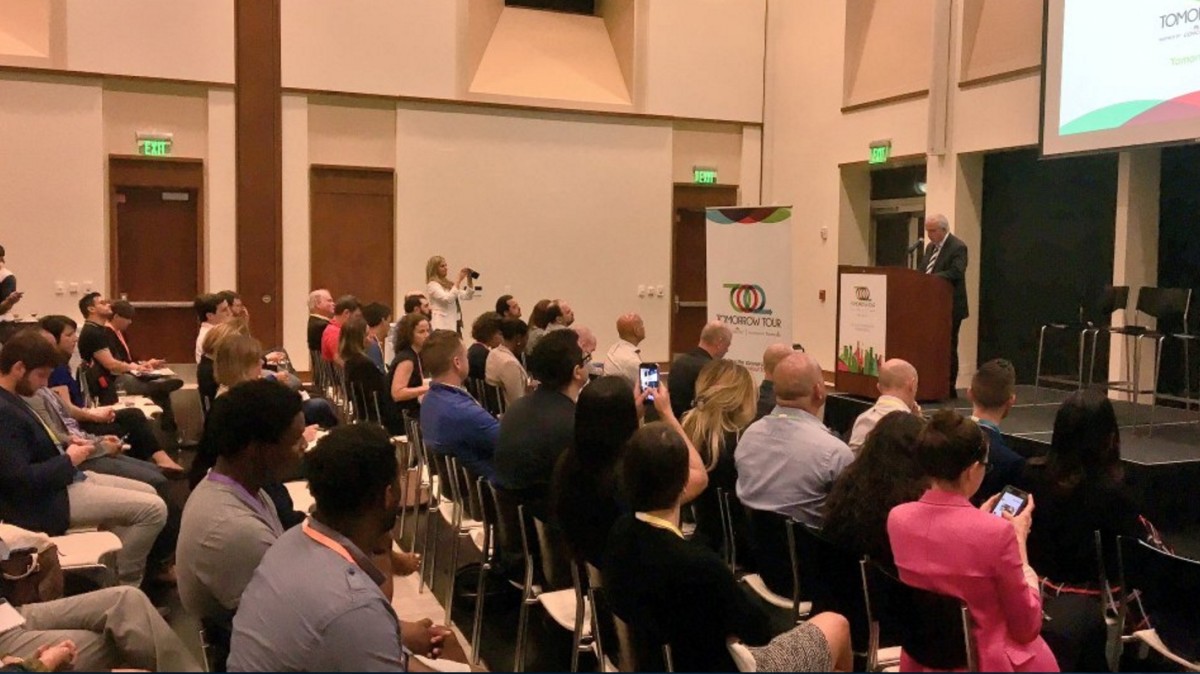One way to characterize how an entrepreneurship community is developing is to see which side of the equation it needs to pay more attention to: live or work.
All great cities have some version of that mix, a place where the world’s mobile talent pool would spend both their professional and personal lives with joy — because they’re only getting choosier. In Miami, though transit lovers are still left wanting, few question the “live” side of the equation — the beach and weather and art and nightlife are all listed by most startup community veterans when asked why they stay here.
But the work side has been another matter altogether. Into the void of a city with less industry than our country’s older urban centers has come the city’s new entrepreneurship movement — one that is largely peopled by relative newcomers brought here because of the lifestyle benefits.
It’s already a place to live. Now we need it to be the place to work.”
It's already a place to live. Now we need it to be the place to work.
“Miami has always been very central,” said Germán Montoya, the mustachioed economist-turned-entrepreneur who is a cofounder of Rokk3r Labs, a tech startup incubator that “co-builds” its portfolio companies for a mix of equity and fees.
He spoke earlier this month at the Miami stop of the Tomorrow Tour, a multi-city event and reporting series produced by Technical.ly with Comcast NBCUniversal, which announced earlier this year plans for a new $250 million headquarters for Telemundo northwest of the city.
For a city in the country’s very southeast corner, Montoya speaks about Miami’s centrality to the world — he is one of 40 Colombians who make up nearly half of the 100-person Rokk3r team across six offices. Indeed, Miami is among the country’s most diverse cities — with one of the densest clusters of new businesses per person, which has caught national attention.
Like any place, geography matters mightily here.

While Rokk3r and WeWork started in Miami Beach, where most tourists flock, much of the urbanity is happening in Miami city, including its downtown Brickell neighborhood and others like Wynwood (and beyond), where the historically media-focused Knight Foundation has invested heavily. (For a fun drinking game, go to an innovation event in Miami and see how many times Knight, which is headquartered there, gets mentioned.)
The innovation community looks gratefully on what Knight, particularly its Miami Program Director Matt Haggman, has done, but seems to acknowledge its dependency: “What would Miami be if they went away?” asked one founder with a genuine degree of concern.
Sometimes Miami can be too welcoming.
Knight has an outsized role but it can’t be the only one responsible for fixing Miami’s tech and entrepreneurship community lacking a “center of gravity,” as Natalia Martinez-Kalinina put it. She is the new local general manager of the Cambridge Innovation Center, which announced plans in the fall to expand to a University of Miami life sciences park.
That kind of rigorous programming is needed, many say. Miami has a next-generation business community that is still developing a stronger culture of work-first follow-through, or at least that’s some of what Chris Sopher has heard in leading The New Tropic, a culture-orientated media group that produces the popular Startup.Miami reporting effort. (Contrast the reputation for some in Miami to someone like Sopher’s colleague, Rebekah Monson, a local community leader who doubles as a Code for Miami brigade captain, Hacks/Hackers local organizer and part of the city’s fledgling civic hacking scene.)
Fortunately, Knight appears to be going nowhere and its aspirations are no less bold. In the fall, Knight announced they put $2 million into Startupbootcamp, an accelerator program with European roots that will develop digital health startups here. In doing so, Startupbootcamp founder Christian Seale called Miami “America’s city of 2050.”
Knight also helped introduce LaunchCode to Miami in 2014, a coding-focused workforce development program that joins homegrown coding bootcamp programs like Wyncode and Code Fever, plus Ironhack.
There are other institutions at play: Susan Amat cofounded in 2008 the University of Miami’s Launch Pad entrepreneurship support services group before she helped launch Venture Hive, now Miami’s best-known business incubator.
But now must come the companies.
Many in Miami, like every newly reassembling entrepreneurship market, say they don’t have enough risk-tolerant, early-stage capital to thrive. What tends to follow is a generation of startups that surge by accessing capital markets elsewhere, like adtech play Bidtellect’s $22.35 million round, Latin America-focused mobile wallet service YellowPepper’s $19 million and the wild $794 million round for augmented reality company Magic Leap.
There is a new generation of startups — 500 Startups has hosted a version of its accelerator program here, and founders like Richard Lavina from Taxfyle are trying to make it work.
“But still in South Florida, anyone who drives a Tesla is in healthcare or real estate,” Lavina said. “There’s not quite that tech money yet.”
You can come for the beaches but you'll only stay for something more.
The group that most needs to join in the conversation is the corporate community, say some — more than half of South Florida’s 1,100 multinationals are there to manage their Latin American presence.
“Fill the room with people who are here instead of those who aren’t,” said Juan Pablo Cappello, one of Miami’s startup community fathers, from his venture-minded law firm Private Advising Group and leadership at Patagon.com, one of Miami’s first big web companies. Cappello is vocal on the need for the Miami startup community to engage what corporates are there — many of whom see Miami as a gateway to Latin America.
One of them is Watsco, an air conditioning behemoth, that has taken a novel approach to rethinking its industry. Four years ago it launched Watsco Ventures, a corporate ventures arm run by Ivan Rapin-Smith. He’s a colorful former Belgium accelerator leader who says all kinds of things that might surprise you: like “air-conditioning as a service.” That’s a reference to a Watsco spinout that promises a monthly subscription to limit the hassle, upfront cost and longterm maintenance of also owning a unit. Last year, the company launched an accelerator program to ramp up these kinds of ideas.
“When I came four years ago, [the Miami startup scene] was Launch Pad and Refresh Miami, and that was pretty much it,” said Rapin-Smith. That’s changed considerably, he said — including attention from policymakers.

The Mayor of Miami-Dade County, Carlos Gimenez, (not to be confused with the mayors of Miami Beach and the City of Miami) wants to be seen as a tech mayor, “even at 62-years-old” he joked at the event, which was held at the University of Miami Alumni Center in Coral Gables on March 2.
To prove it, he took questions and vamped after his prepared remarks, gabbing about his embrace of ridesharing companies like Uber and Lyft (while also lending sympathy for the cab driver’s plight).
The number of ridesharing drivers doesn’t need to be regulated by the government, Gimenez said, “because we’ll get it wrong.”
“We don’t regulate most things,” he said. “There are exactly the right number of Cuban restaurants in Miami right now.”
And the city has Cuban restaurants in spades. Talk to founders and they’ll list the city’s diversity as their best advantage to being a global entrepreneurship and innovation hub. Consider the stats:
- More than half of 2.6 million Miami-Dade County residents are foreign-born (compared to just 13 percent nationally).
- More than 90 percent of the county’s foreign-born residents come from Latin America and the Caribbean, including nearly half of them from Cuba, according to Zillow figures.
- But the Miami community, boasting its lifestyle, seems to want to shake the idea that it’s only the entry point for other parts of the Americas — there was once the country’s largest Finnish population here, for instance, and given that nearly two-thirds of Miami households use Spanish as a first language, there is a natural connectivity also with Spain.
Of course Miami’s accessibility and diversity brings its own set of challenges.
“Sometimes Miami can be too welcoming,” said Michael Hall, the cofounder and CEO of Digital Grass, a diversity entrepreneurship support group, which results in that “lack of follow-through, lack of hustle.”
The South Florida startup scene has a culture of people wanting to give the “impression of action, to always avoid a sign of failure,” said Martinez-Kalinina of the local Cambridge Innovation Center.
How do you keep strong a community aiming at collective business growth and not personal advantage?
“You need that asshole in the community to question,” said Hall. That is, be welcoming but press for accountability.
Attraction of new talent is no doubt a sign of Miami’s strengths. Retention of talent, too, is key. But a better Miami entrepreneurship community, said Felicia Hatcher, the Code Fever cofounder fresh off co-organizing the latest Black Tech Week, would also develop those who are already here but perhaps not yet benefiting from the tech economy.
“We need more people going into the community and finding new great minds,” said Hatcher.
That diversity also means a diversity of businesses. Dr. Pandwe Gibson, a Louisiana native, is building out EcoTech Visions, an incubator and shared facility for light manufacturing and production that addresses environmental challenges.
The sense is that among the mirages of nightclubs and tourists, Miami needs to focus on serious business.
“I think we make a big mistake when we chase rainbows,” said Cappello of Private Advising Group. “It’s already a place to live. Now we need it to be the place to work.”
There’s Jason Ibarra, the local Startup Grind organizer who said he was inspired by many local founders. He just launched Recovery Passport, an app, system and network aimed at supporting addiction recovery.
“You can come for the beaches but you’ll only stay for something more. And that something more is what will develop Miami’s business community, alongside its tourism and social offerings,” Ibarra said. “Start a company here because your head or heart is here.”







